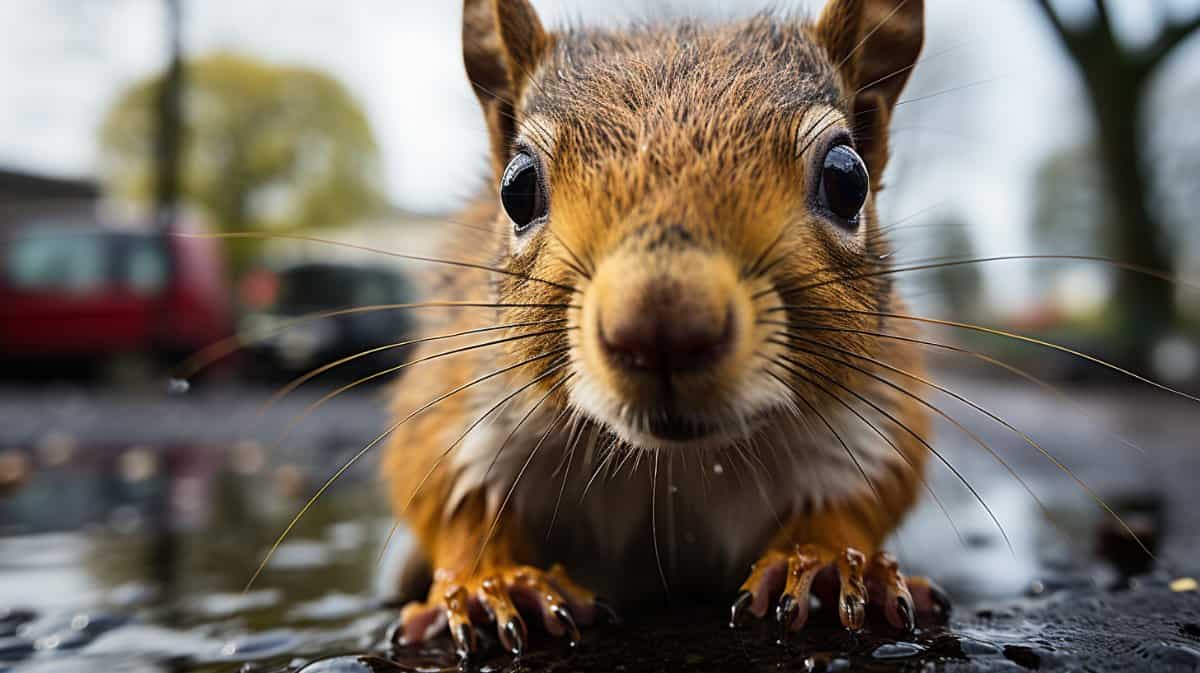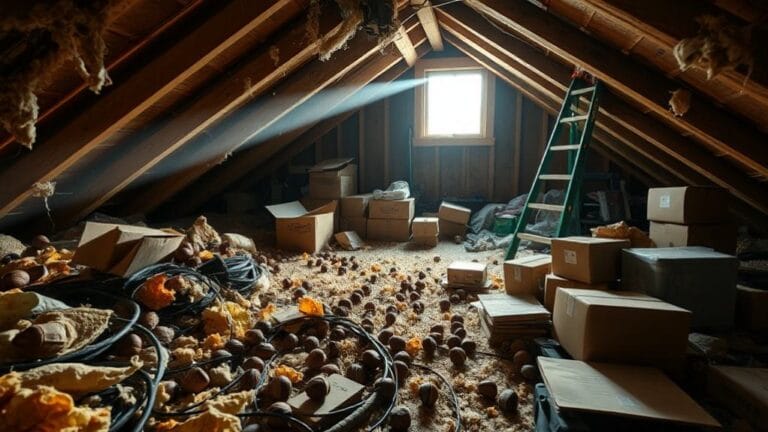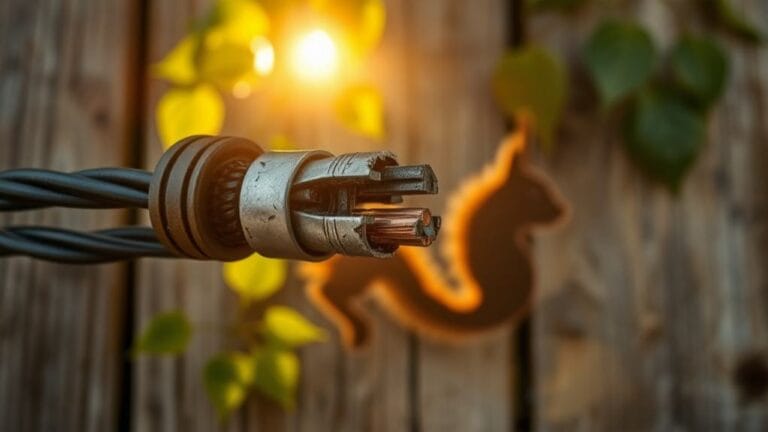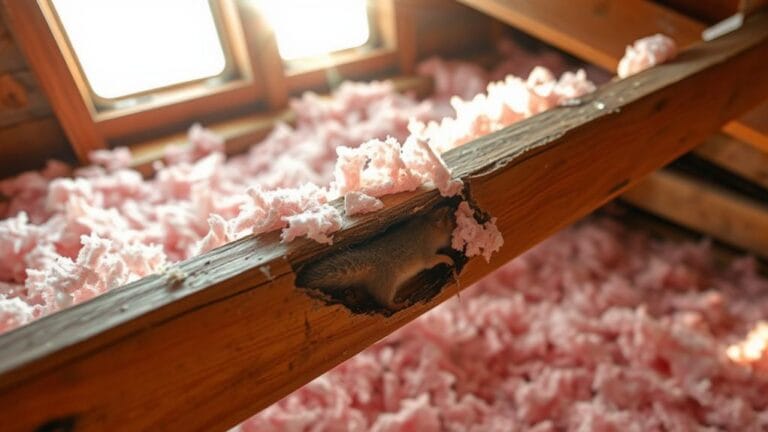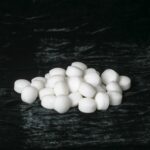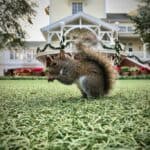If you’re a homeowner or gardener, you may be wondering if mothballs are an effective way to keep squirrels away. Squirrels can be a nuisance, causing damage to gardens, homes, and outdoor structures. Mothballs are a common household item that many people believe can repel squirrels. In this article, we will explore whether mothballs are an effective squirrel deterrent and their impact on the environment and human health.
Key Takeaways
Table of Contents
- Mothballs may repel squirrels, but they are not a guaranteed solution.
- Mothballs can be harmful to the environment and human health.
- Alternative squirrel deterrents include physical barriers, natural repellents, and changing the environment.
Understanding Squirrels and Their Habits
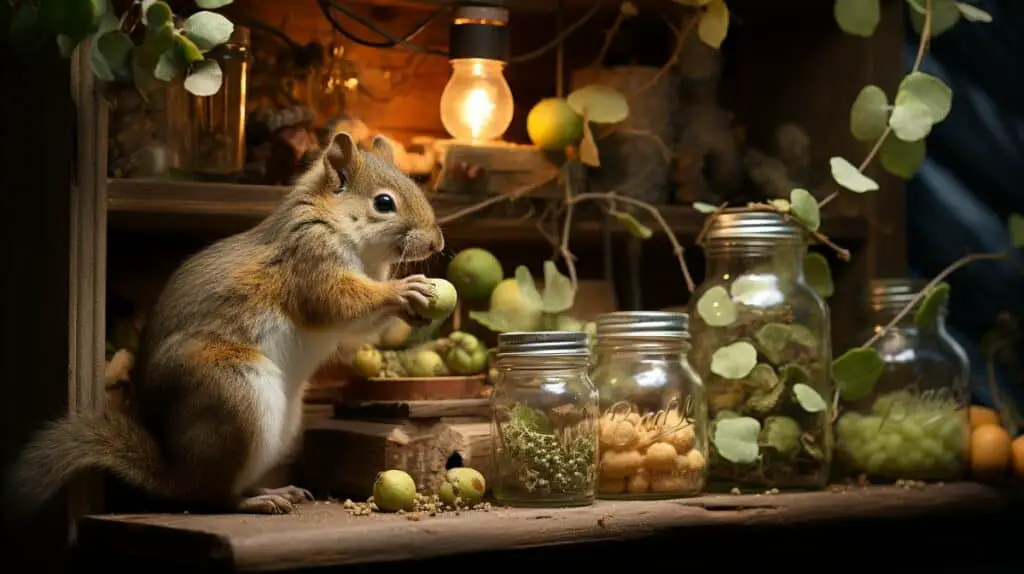
If you are a gardener, you know how pesky squirrels can be. These cute little creatures can cause a lot of damage to your garden, trees, and plants. Squirrels are known for stealing food sources and digging up bulbs. They are also notorious for chewing on anything they can find, including wires and hoses.
Squirrels are active throughout the year, but they are most active during the fall when they are busy gathering food for the winter. They are known to stash food in various locations, including trees, holes, and even in your attic. Squirrels are also known for their acrobatic skills, which allow them to climb trees and jump from branch to branch with ease.
If you have fruit trees in your garden, you may have noticed that squirrels are attracted to fallen fruit. They will eat the fruit and may even damage the tree in the process. Squirrels are also attracted to bird feeders and will often steal birdseed.
To keep squirrels away from your garden and trees, it is important to understand their habits and behavior. You can use this knowledge to create a strategy for keeping these pesky critters away from your property.
Here are some tips for keeping squirrels away:
- Remove any fallen fruit from your garden to eliminate a food source.
- Install bird feeders that are squirrel-proof.
- Use mesh or netting to cover fruit trees to prevent squirrels from accessing the fruit.
- Use motion-activated sprinklers to scare squirrels away from your garden.
- Use repellents like mothballs or predator urine to keep squirrels away.
By understanding squirrel behavior and using these tips, you can keep your garden and trees safe from these pesky critters.
Related Posts:
- How to Keep Squirrels Away From Pumpkins
- How to Keep Squirrels Out of Chicken Feed
- How to Get Squirrels Out of Your House
- How to Keep Squirrels Away From Strawberry Plants
- How to Keep Squirrels Out of Flower Pots
What Are Mothballs?
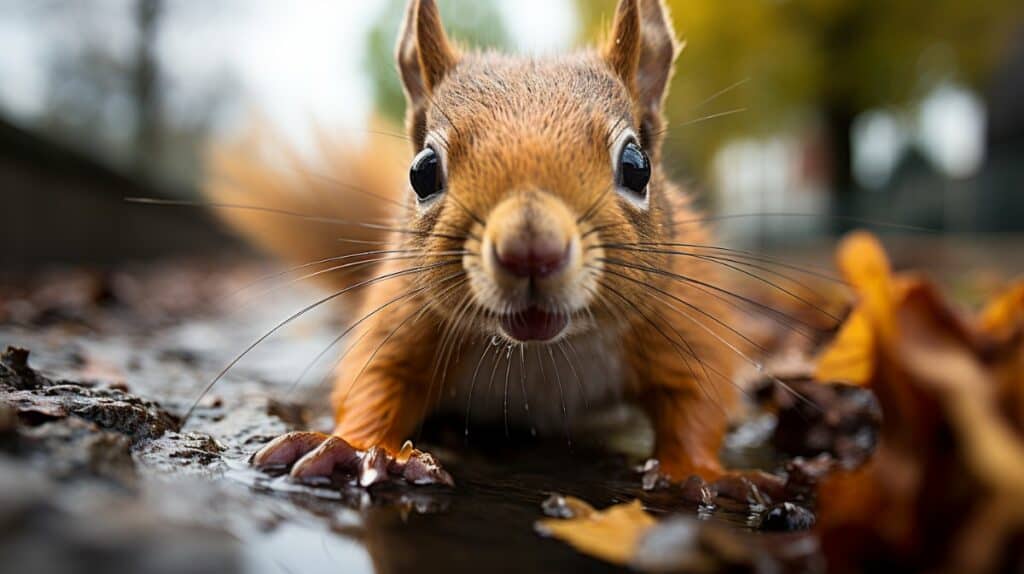
Mothballs are small balls or tablets that are used to repel moths and other insects from clothes and fabrics. They are usually made of two chemicals: naphthalene and/or dichlorobenzenes. These chemicals are highly volatile and can easily vaporize into the air. Mothballs are known for their strong, pungent odor that can linger for a long time.
Naphthalene is a white crystalline solid that is derived from coal tar or petroleum. It is used in the production of chemicals, such as dyes, resins, and plastics. Naphthalene is also used as a fumigant and a pesticide. It works by releasing a gas that is toxic to insects, such as moths, and can cause harm to humans and animals if ingested or inhaled in large quantities.
Dichlorobenzenes are a group of chemicals that are used as solvents, pesticides, and deodorizers. They are also used in the production of plastics, dyes, and other chemicals. Dichlorobenzenes have a strong, sweet odor and are highly volatile. They work by releasing a gas that can repel insects and other pests.
Mothballs are not only used to repel moths and other insects from clothes and fabrics, but they are also used as a deterrent for other pests, such as squirrels. However, the use of mothballs as a squirrel deterrent is highly debated, and there is no conclusive evidence that they are effective in repelling squirrels. In fact, using mothballs in open areas can be harmful to wild animals, soil fertility, pets, and even humans.
Mothballs as a Squirrel Deterrent
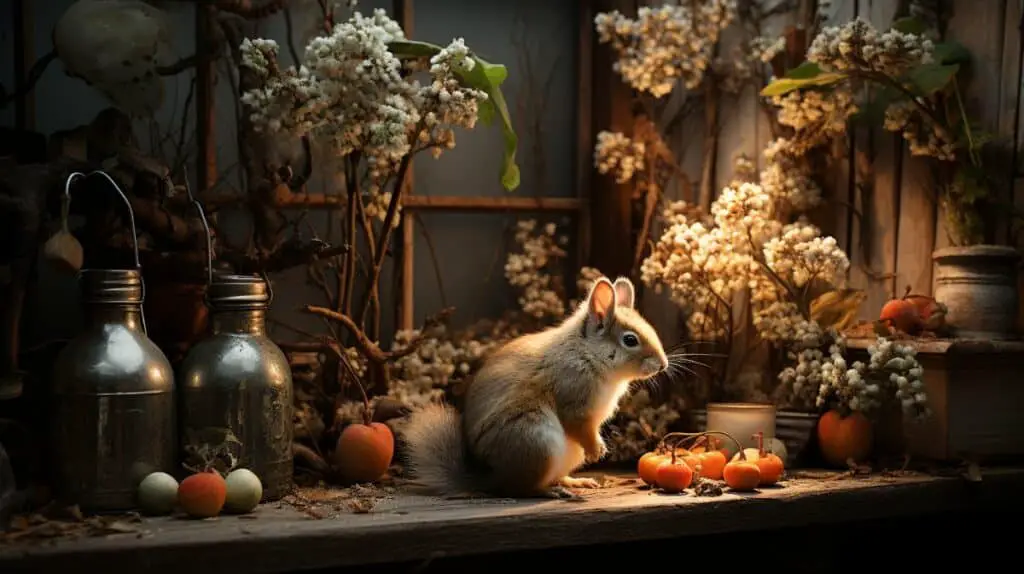
Mothballs are a popular squirrel deterrent. Squirrels have a strong sense of smell, and mothballs have a strong, sweet scent that repels them. Mothballs are made of either naphthalene or paradichlorobenzene, which are chemicals that release a gas that is toxic to squirrels. When placed in areas where squirrels are present, the strong odor of mothballs can keep them away.
However, it’s important to note that mothballs should not be used as the sole method of squirrel control. While they repel squirrels, they are also toxic to other animals and humans. Mothballs should only be used in areas where there is no risk of exposure to pets, children, or other wildlife.
Additionally, the effectiveness of mothballs as a squirrel deterrent varies. Some squirrels may be more sensitive to the odor of mothballs than others. In some cases, squirrels may become accustomed to the scent and return to the area after the odor has dissipated.
Overall, mothballs can be an effective tool in deterring squirrels, but they should be used with caution and in conjunction with other methods of squirrel control.
Related Posts:
- Best Squirrel Repellents in 2023 that Actually Works
- 6 Best Squirrel Traps That Actually Work
- Best Ultrasonic Squirrel Repeller: Top 9 Devices
- Do Coffee Grounds Keep Squirrels Away?
- 9 Effective Methods To Keep Squirrels Away From Your Car
Impact of Mothballs on the Environment
Mothballs are known to be effective in repelling squirrels, but their use can have a significant impact on the environment. Here are some of the ways mothballs can impact the environment:
Harmful to Plants
Mothballs contain naphthalene, which is a toxic chemical that can harm plants. When mothballs are used in the garden, the naphthalene can seep into the soil and harm the roots of plants. This can lead to stunted growth, discoloration, and even death of the plants.
Harmful to Animals
Mothballs are highly toxic to animals, including squirrels. The naphthalene in mothballs can cause liver and kidney damage, anemia, and even death. If a squirrel ingests a mothball, it can suffer from these health problems and die.
Harmful to Humans
Mothballs can also be harmful to humans. If mothballs are used in enclosed spaces, such as closets or drawers, the naphthalene can evaporate and cause respiratory problems, headaches, and nausea. Ingesting mothballs can also be harmful to humans, especially children, who may mistake them for candy.
Harmful to the Environment
Mothballs can also have a harmful impact on the environment. When mothballs are used outdoors, the naphthalene can seep into the soil and contaminate groundwater. This can harm aquatic animals and plants, as well as other animals that depend on the water source.
In conclusion, while mothballs can be effective in repelling squirrels, their use can have a significant impact on the environment. It is important to use alternative methods to repel squirrels that are not harmful to the environment, such as planting certain types of plants or using natural repellents.
Effects on Humans and Pets
Mothballs contain naphthalene, a toxic chemical that can be harmful to humans and pets. According to the CDC, exposure to naphthalene can cause headaches, nausea, vomiting, and even death in extreme cases. Long-term exposure to naphthalene can also cause hemolytic anemia, a condition that destroys red blood cells in the body.
If you decide to use mothballs to repel squirrels, it is important to keep them out of reach of children and pets. Ingesting mothballs can be extremely dangerous for both humans and animals. If you suspect that someone has ingested mothballs, seek medical attention immediately.
Mothballs can also be harmful to pets if they inhale the fumes or come into contact with the mothballs. Cats are especially sensitive to naphthalene and can experience symptoms such as vomiting, diarrhea, and lethargy if they come into contact with mothballs. Dogs can also experience similar symptoms if they ingest mothballs.
To prevent harm to humans and pets, it is important to use mothballs in a well-ventilated area and to keep them out of reach of children and pets. If you have pets, it is best to use alternative methods to repel squirrels.
Overall, while mothballs can be effective in repelling squirrels, the potential harm to humans and pets outweighs the benefits. It is best to use alternative methods such as traps or deterrent sprays that are safe for both humans and pets.
Alternative Squirrel Deterrents
If you’re looking for alternative ways to keep squirrels away from your garden, there are a few options you can try. While mothballs are a popular choice, they can be harmful to pets and humans if ingested. Here are some other options that are safer and just as effective:
Pepper and Garlic
Squirrels have sensitive noses, and strong smells can be enough to deter them. Sprinkle some pepper or garlic around your garden to create a scent barrier that squirrels will avoid. You can also mix the two together for an even stronger scent.
Cayenne Pepper
Cayenne pepper is another strong-smelling option that can keep squirrels away. Mix some cayenne pepper with water and spray it around your garden. Be careful not to spray it directly on your plants, as it can harm them.
Peppermint and Essential Oils
Squirrels don’t like the smell of peppermint, so you can use peppermint oil or other essential oils to create a scent barrier. Mix a few drops of oil with water and spray it around your garden. You can also soak cotton balls in the oil and place them around your garden.
Hot Pepper
Similar to cayenne pepper, hot pepper can be used to create a spray that squirrels will avoid. Mix some hot pepper with water and spray it around your garden. Be careful not to spray it directly on your plants, as it can harm them.
Remember to reapply these deterrents after rain or watering, as the scent will wash away. With these alternatives, you can keep squirrels away from your garden without resorting to harmful chemicals.
Related Posts:
- Do Ultrasonic Pest Repellers Interfere with WiFi?
- Do Electronic Squirrel Repellents Work?
- Ultrasonic Pest Repeller Side Effects: Unveiling the Truth
- How Long Do Ultrasonic Pest Repellers Last?
- Do Ultrasonic Squirrel Repellents Work? Find Out Here!
Preventing Squirrel Damage
Squirrels are cute creatures, but they can cause a lot of damage to your property. They can chew through wires, insulation, and even wood. If you have a garden, squirrels can also dig up your plants and eat your fruits and vegetables. Fortunately, there are ways to prevent squirrel damage.
Garden
If you have a garden, squirrels can be a real problem. They love to dig up bulbs and eat fruits and vegetables. Here are some ways to keep squirrels out of your garden:
- Use wire mesh to cover your garden beds.
- Plant garlic, onions, and other strong-smelling plants that squirrels dislike.
- Use squirrel repellent spray.
Car
Squirrels can also cause damage to your car. They can chew through wires and hoses, which can be expensive to repair. To prevent squirrel damage to your car, try the following:
- Park your car in a garage or carport.
- Use a squirrel repellent spray on and around your car.
Attic
Squirrels love to nest in attics, and they can cause a lot of damage. They can chew through wires, insulation, and even wood. To prevent squirrel damage to your attic, try the following:
- Seal all entry points to your attic.
- Use wire mesh to cover vents and other openings.
- Use a squirrel repellent spray.
Bird Feeders
Bird feeders can attract squirrels, who will eat the birdseed and cause damage to the feeder. To prevent squirrel damage to your bird feeders, try the following:
- Use a squirrel-proof bird feeder.
- Hang your bird feeder from a wire or pole that squirrels can’t climb.
Shed
Squirrels can also nest in sheds, and they can cause damage to the structure. To prevent squirrel damage to your shed, try the following:
- Seal all entry points to your shed.
- Use wire mesh to cover vents and other openings.
- Use a squirrel repellent spray.
Related Posts:
- How to Get a Squirrel Out of your Wall? Quick and Easy Method
- How to Get Rid of Squirrels in the Roof
- What Damage Can Squirrels Do in the Attic
- How to find out where Squirrels are getting in: Top 10 Entry Points
- How to Get Rid of Red Squirrels in Garage
Conclusion
In conclusion, using mothballs to repel squirrels is a debated topic among homeowners. While mothballs can be effective in keeping squirrels away, they are not a guaranteed solution, and their use comes with potential safety concerns.
If you decide to use mothballs to control squirrels, it is important to follow safety guidelines carefully. Mothballs are toxic and can be harmful to humans and pets if ingested. Therefore, it is essential to keep them out of reach of children and animals.
Additionally, mothballs should never be used indoors or in enclosed spaces, as they release toxic fumes that can cause respiratory problems. It is also important to note that the use of mothballs is regulated in some states, so be sure to check local regulations before using them.
Overall, while mothballs may be a viable option for deterring squirrels, it is important to weigh the potential risks against the benefits. If you choose to use mothballs, make sure to follow safety guidelines carefully and monitor their effectiveness.
Frequently Asked Questions
What is the most effective squirrel repellent?
There are several effective squirrel repellents available in the market. Some of the most popular ones include peppermint oil, cayenne pepper, and predator urine. These repellents work by creating an unpleasant smell or taste that squirrels find repulsive.
How to deter squirrels from house
To deter squirrels from your house, you can take several steps. First, seal off all possible entry points to your house, including gaps in the roof and walls. Second, remove all sources of food and water that may attract squirrels, such as bird feeders and pet food bowls. Finally, use squirrel repellents to create an unpleasant environment for them.
Will mothballs keep chipmunks away?
Mothballs are not an effective way to keep chipmunks away. While they may work for some pests, chipmunks are not deterred by the smell of mothballs. Instead, you can use other methods such as predator urine or cayenne pepper to keep chipmunks away.
What smell do squirrels hate the most?
Squirrels have a strong sense of smell and are repelled by certain odors. Some of the smells that squirrels hate the most include peppermint, cayenne pepper, and vinegar. These smells can be used to create a repellent that will keep squirrels away from your property.
Are moth balls good to keep squirrels away?
Mothballs are not a good way to keep squirrels away. While they may work for some pests, squirrels are not deterred by the smell of mothballs. In addition, mothballs are toxic and can be harmful to pets and children if ingested.
What animals will mothballs keep away?
Mothballs are effective at keeping away certain pests such as moths, cockroaches, and mice. However, they are not effective at keeping away larger animals such as squirrels, raccoons, or deer. In addition, mothballs are toxic and can be harmful to pets and children if ingested.

